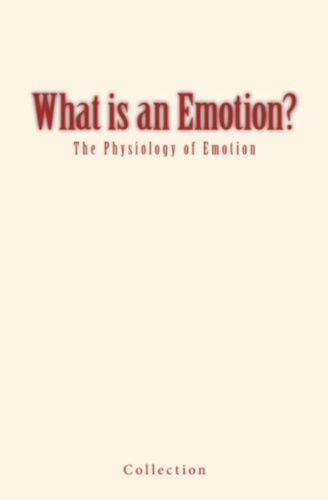En cours de chargement...
What is an Emotion?
Our natural way of thinking about the standard emotions is that the mental perception of some fact excites the mental affection called the emotion, and that this latter state of mind gives rise to the bodily expression. The thesis on the contrary is that the bodily changes follow directly the PERCEPTION of the exciting fact, and that our feeling of the same changes as they occur IS the emotion.
"Common sense says, we lose our fortune, are sorry and weep; we meet a bear, are frightened and run; we are insulted by a rival, are angry and strike. The hypothesis here to be defended says that this order of sequence is incorrect, that the one mental state is not immediately induced by the other, that the bodily manifestations must first be interposed between, and that the more rational statement is that we feel sorry because we cry, angry because we strike, afraid because we tremble, and not that we cry, strike, or tremble, because we are sorry, angry, or fearful, as the case may be.
Without the bodily states following on the perception, the latter would be purely cognitive in form, pale, colourless, destitute of emotional warmth. We might then see the bear, and judge it best to run, receive the insult and deem it right to strike, but we could not actually feel afraid or angry.
---
The functions and acts of ordinary life, it is true, still remain to me; but in every one of them there is something wanting - to wit, the feeling which is proper to them, and the pleasure which follows them.
... Each of my senses, each part of my proper self, is as it were separated from me and can no longer afford me any feeling; this impossibility seems to depend upon a void which I feel in the front of my head, and to be due to the diminution of the sensibility over the whole surface of my body, for it seems to me that I never actually reach the objects which I touch...


